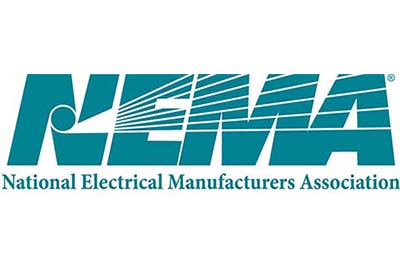NEMA Outlines Ways to Decarbonize ‘Difficult’ Industrial Sector

March 23, 2022
The National Electrical Manufacturers Association (NEMA) recently submitted comments to the Department of Energy’s Office of Energy Efficiency & Renewable Energy (EERE) in response to the Advanced Manufacturing Office’s (AMO) Request for Information (RFI) on Industrial Decarbonization Priorities.
In the RFI, the AMO notes that the industrial sector may be ‘difficult-to-decarbonize.’ But difficult doesn’t mean impossible, and there are incremental steps we can take today. The electroindustry recognizes the importance and urgency of decarbonizing manufacturing and production processes as we work towards economy-wide emissions reductions. In our RFI response, NEMA highlighted areas where electroindustry technologies can help decarbonize the industrial sector: Power Drive Systems, Lighting Controls, and Building Management Systems.
Power Drive Systems:
Outdated equipment and control systems can stall decarbonization. However, upgrading legacy equipment to modern, ‘smart manufacturing’ Power Drive Systems (PDS) – that are more energy efficient – can reduce a system’s energy consumption.
To help end-users achieve decarbonization goals and enable Smart Manufacturing technologies outlined in our comments, NEMA recently published the new “power index” (PI) standard. The standard introduces a PI metric, which allows PDS and drives to be compared for optimal energy savings for end-users. By utilizing the PI in their incentive programs, utilities and regulators can create significant energy savings for American businesses, schools, hospitals, and families – launching the country towards a bright, electrified future.
Lighting Controls & Building Management Systems:
Another area where the electroindustry can facilitate decarbonization is buildings. NEMA shared three ways in our comments:
- Upgrading old and inefficient building technologies with energy efficient management systems – the switch could save 30-50% of energy costs;
- Installing readily available LED lighting systems that can reduce energy consumption and carbon output up to 75%;
- And structuring buildings to make them “smarter” by incorporating natural light results in a 25% energy efficiency rating, compared to 2% from solar panel systems.
You can read NEMA’s full comments HERE
By Fern Abrams, NEMA Industry Director, Industrial Systems and Peter Ferrell, Manager, Connectivity and Data Policy











![Guide to the Canadian Electrical Code, Part 1[i], 26th Edition– A Road Map: Section 56](https://electricalindustry.ca/wp-content/uploads/2022/11/Guide-CE-Code-2.png)



